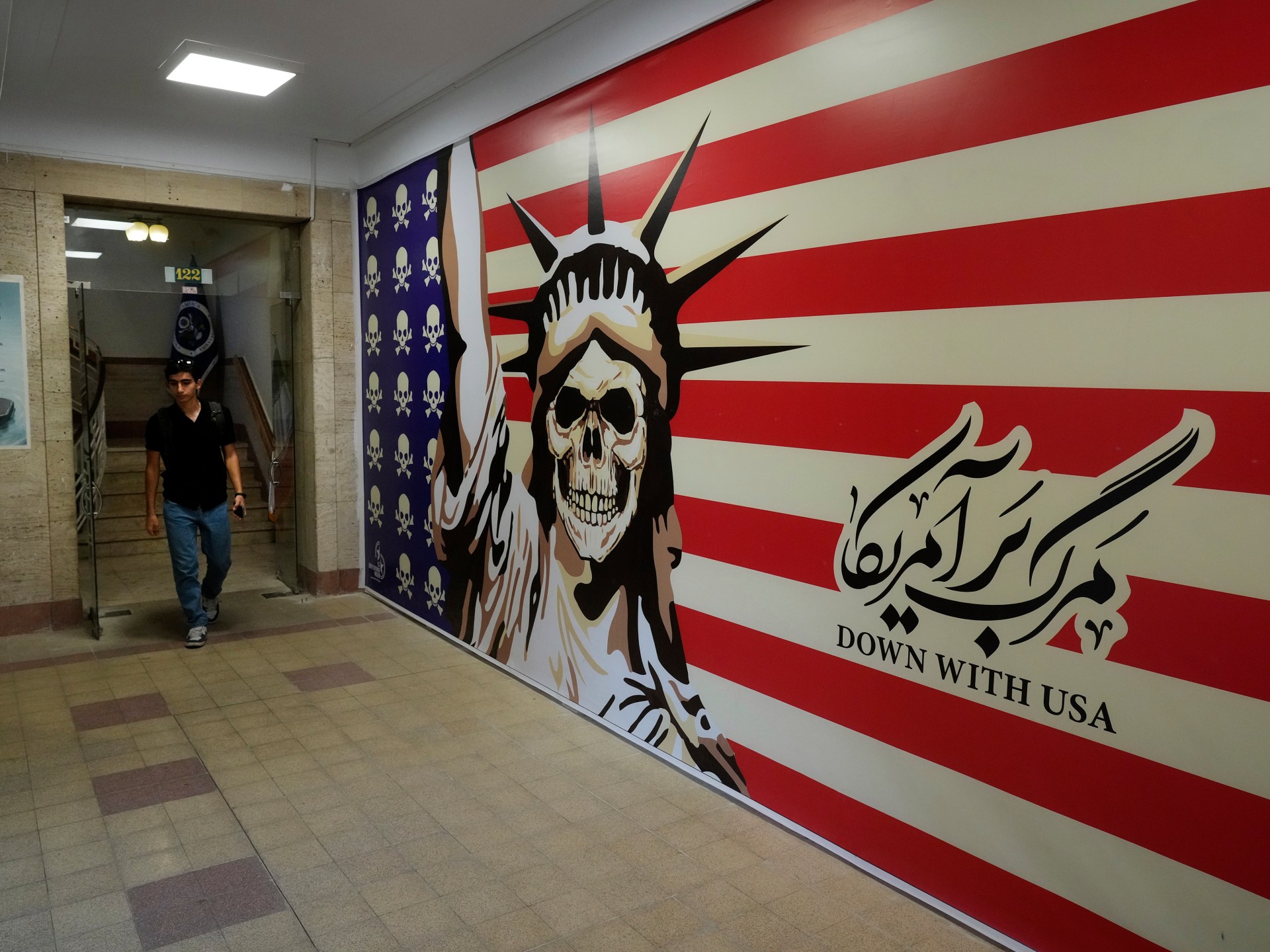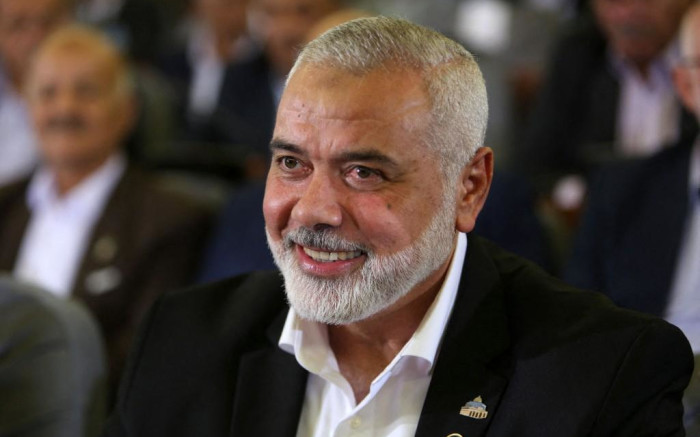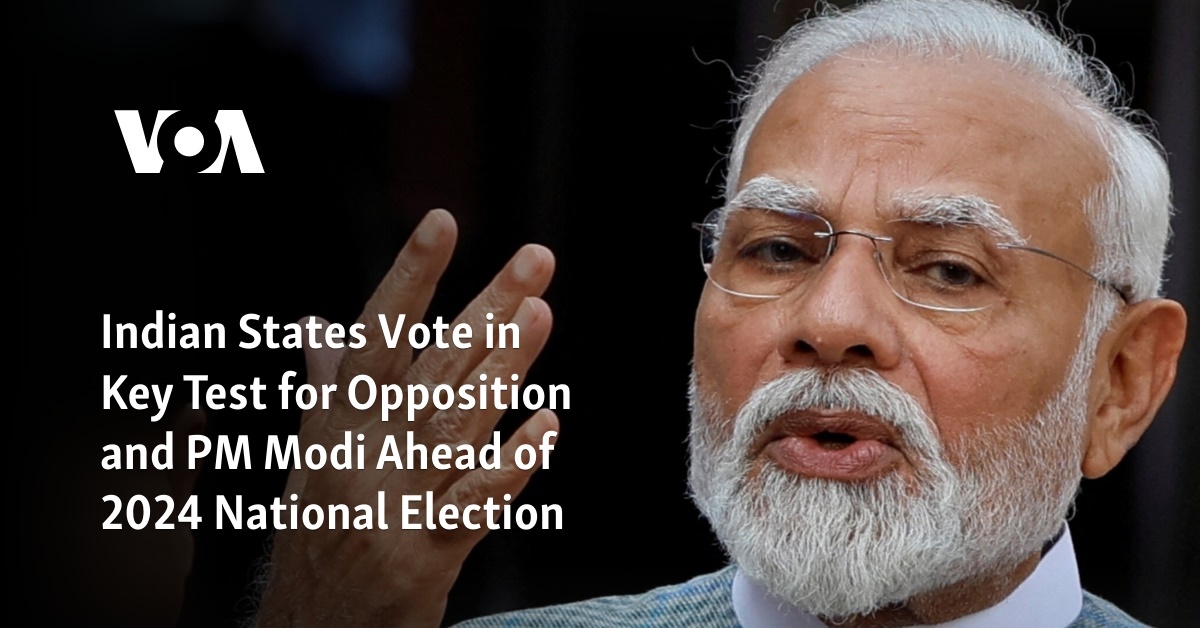
LONDON (AP) — An Irish nationalist made history Saturday by becoming Northern Ireland’s first minister as the government returned to work after a two-year boycott by unionists.
Sinn Féin vice-president Michelle O’Neill has been appointed as the first minister of the government, which, under the terms of the 1998 Good Friday Peace Agreement, will divide power equally between Northern Ireland’s two largest communities – British unionists who want to remain in the UK and Irish nationalists who want to remain in the UK are trying to unite with Ireland.
Northern Ireland was founded in 1921 following the independence of the Republic of Ireland as a unionist part of the United Kingdom with a Protestant majority. Therefore, O’Neill’s nomination was seen as a highly symbolic moment for nationalists.
“This is a historic day that represents a new departure,” said O’Neill. “It would have been unimaginable for my parents and grandparents’ generation that such a day would ever come. Because of the Good Friday Agreement, the old state they were born into has disappeared. A more democratic and equal society has been created, making this a better place for everyone.”
O’Neill will share power with Deputy First Minister Emma Little-Pengelly of the Democratic Unionist Party. The two will be equal, but O’Neill, whose party won more seats in the Northern Ireland Assembly in the 2022 election, will hold the more prestigious title.
Neither side can rule without the consent of the other. Government business fell by half in the last two years after the DUP quit in protest over Brexit-related trade issues.
O’Neill, 47, was born in the Republic of Ireland but grew up in the north and comes from a family with links to the militant Irish Republican Army. Her father was jailed as an IRA member, an uncle raised money for the group and two of her cousins were shot by security forces – one fatally.
O’Neill was criticized for attending events commemorating the IRA and told an interviewer that there was “no alternative” to the group’s armed campaign during the Troubles, a period of about 30 years of violent conflict over the future of Northern Ireland that began with ended the Good Friday Agreement.
“I don’t think any Irish person has ever woken up one morning and thought that conflict was a good idea, but war came to Ireland,” she said in 2022. “I think there was no alternative then, but there is now Fortunately, we have an alternative to conflict and that is the Good Friday Agreement.”
At 15, O’Neill became pregnant and her mother gave up her job to help raise her granddaughter so that O’Neill could continue to go to school. She said the Catholic school she attended was unsupportive and the pregnancy was a “very negative” experience.
“It almost made you feel like girls couldn’t be in school, something like that,” she said.
A member of Sinn Féin, the IRA-affiliated party, O’Neill was elected to Dungannon Borough Council in 2005, replacing her father. She was elected to the Stormont Assembly in 2007.
Both O’Neill and Little-Pengelly, 44, grew up in the shadow of the Troubles and vowed to work together to bridge divides that once seemed insurmountable.
“The past, with all its horrors, can never be forgotten, nor will it be allowed to be rewritten, but although we are shaped by the past, we are not defined by it,” Little-Pengelly said. “My childhood experience gave me the drive and desire to not only create a different future for myself, but to do everything I could and can to ensure a better future for all of us.”
Former Sinn Fein president Gerry Adams, who helped negotiate the historic peace deal, was in the gallery to witness O’Neill’s nomination, along with her adult daughter and son.
“As an Irish Republican, I pledge cooperation and genuine honest effort with those colleagues who are British, have a union tradition and value the Union,” O’Neill said. “This is a gathering for everyone – Catholics, Protestants and dissidents.”
Clare Rice, an academic policy researcher, said O’Neill’s new position was “extremely symbolic” and “extremely significant”, although there was no difference beyond semantics to her previous role as deputy first minister.
“All eyes will be on this symbolic nomination today,” Rice told the BBC. “That’s going to be the story that comes out today, never mind the fact that we’re even here.”
The return to government came exactly two years after a DUP boycott over a dispute over trade restrictions on goods entering Northern Ireland from Great Britain. Northern Ireland’s 1.9 million residents were left without a functioning administration as the cost of living soared and public services were overwhelmed.
An open border between the North and the Republic was a key pillar of the peace process that ended the Troubles, so controls between Northern Ireland and the rest of the UK were introduced instead
An agreement between Britain and the EU a year ago, known as the Windsor Framework, eased customs checks and other hurdles but did not go far enough for the DUP, which continued its boycott.
The British government this week agreed to new changes that would remove routine checks and paperwork for most goods entering Northern Ireland, although some checks will remain in place for illegal goods or to prevent disease.
The new changes included laws confirming “Northern Ireland’s constitutional status” as part of the United Kingdom and giving local politicians “democratic control” over any future EU laws that could apply to Northern Ireland.
The British government also agreed to give Northern Ireland more than 3 billion pounds ($3.8 billion) for its struggling public services once the Belfast government returns to work.
“I believe my party has delivered what many have said we could not deliver,” DUP leader Jeffrey Donaldson said outside the Stormont meeting room. “We have delivered changes that many said were not possible and I believe today is a good day for Northern Ireland, a day when our place in the UK and its single market is once again respected, protected in our law and restored so that all our people can enjoy the benefits of our union membership.”
Former DUP leader Edwin Poots was elected speaker of the chamber.






Recent Comments